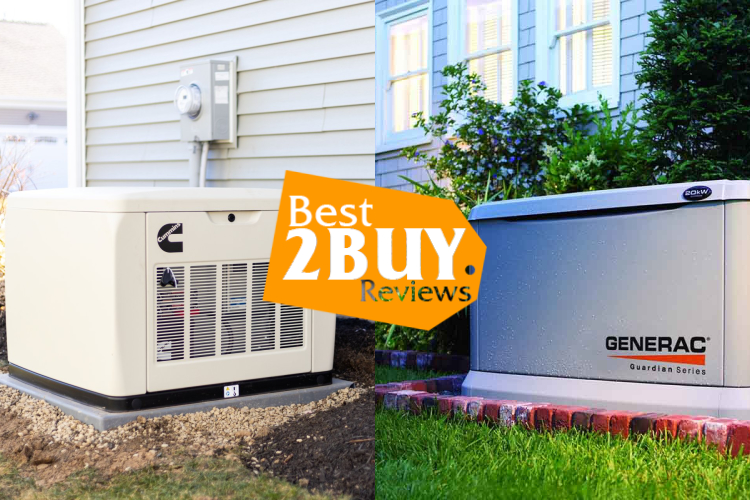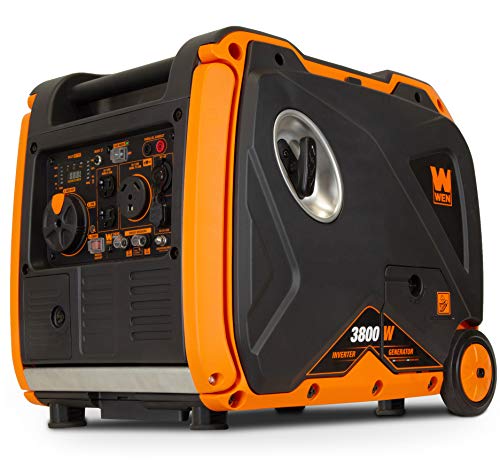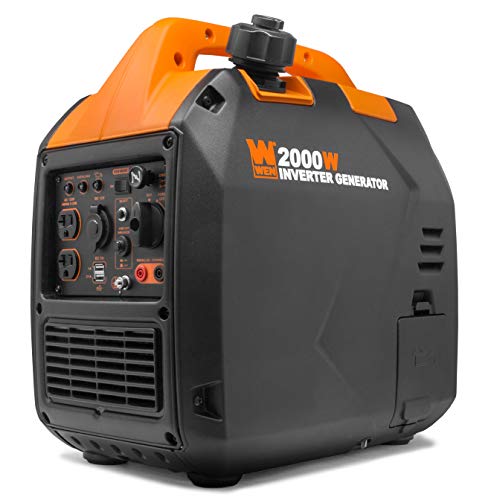The Essential Guide to Home Standby Generators: A Reliable Power Solution

- 1. The Essential Guide to Home Standby Generators: A Reliable Power Solution
- 1.1. What Is A Home Standby Generator?
- 1.2. Benefits of Home Standby Generators
- 1.3. Types of Home Standby Generators
- 1.4. How To Choose A Home Standby Generator
- 1.4.1. Power Requirements
- 1.4.2. Common Uses
- 1.4.3. Fuel Source
- 1.4.4. Budget
- 1.5. Installation and Maintenance
With the escalating occurrence of severe storms and natural disasters, alongside the deterioration of the power grid, the threat of blackouts has grown more imminent. Emphasizing the critical need for a dependable backup energy source during power disruptions is paramount, especially for individuals residing in remote locations or those with specific medical needs. In the market, a variety of home generators are available, catering to a broad spectrum of prices, to guarantee an uninterrupted power flow. This article explores crucial facets of home standby generators, encompassing their benefits, different types, installation processes, and maintenance necessities.
What Is A Home Standby Generator?
A residence backup generator is a secondary power solution crafted to automatically provide electricity to a household in the event of a power disruption. In contrast to portable generators, standby generators are permanently positioned outdoors and linked to the home's electrical grid. They can run on different fuel sources such as natural gas, propane, or diesel, guaranteeing a consistent and uninterrupted power source.
Benefits of Home Standby Generators
- Automatic Operation: One of the primary advantages of standby generators is their automatic activation during a power outage. The system is equipped with a transfer switch that detects the loss of utility power and instantly starts the generator, ensuring uninterrupted electricity supply.
- Whole-House Power: Standby generators have the capacity to power the entire home, including essential appliances, HVAC systems, and electronic devices. This comprehensive coverage distinguishes them from portable generators, which may only support a limited number of appliances.
- Increased Home Value: Installing a standby generator can enhance the resale value of a home. Potential buyers are often attracted to properties with built-in backup power systems, recognizing the added security and convenience they provide.
- Fuel Options: Homeowners can choose between natural gas, propane, and diesel models based on their preferences and local infrastructure. Natural gas generators are particularly popular for their convenience and continuous fuel supply from the utility grid.
Types of Home Standby Generators
Air-Cooled vs. Liquid-Cooled Generators
Standby generators can be classified into two main types: air-cooled and liquid-cooled. Air-cooled generators are known for their compact design, making them a suitable option for smaller homes. Their efficient heat dissipation through air circulation makes them a cost-effective choice for residential use. Conversely, liquid-cooled generators are more robust and can accommodate higher power demands. These generators employ a liquid coolant, usually water or a water-antifreeze mixture, to regulate heat. Liquid-cooled generators are well-suited for larger residences with increased power needs and longer operational durations.
Single-Phase vs. Three-Phase Generators
Another significant categorization is determined by the number of phases, placing generators into either single-phase or three-phase classifications. Single-phase generators find frequent use in residential settings and prove adequate for energizing most household appliances. These generators are ideal for smaller homes, delivering a reliable power source for everyday necessities. In contrast, three-phase generators are commonly utilized in commercial and industrial environments where a greater power capacity is essential. Homeowners should thoroughly assess their power needs to decide whether a single-phase or three-phase generator is better suited to meet their specific requirements.
How To Choose A Home Standby Generator
Choosing a home standby generator is an important decision to ensure your home has a reliable source of power during outages. Here are some key factors to consider when selecting a home standby generator:
Power Requirements
The primary and most important aspect to take into account when selecting a standby generator for your home is your power needs. Begin by creating a comprehensive list of the vital appliances and systems you wish to remain operational in the event of a power outage. This should encompass not only major appliances such as refrigerators and heating systems but also essential medical equipment or other devices crucial for your household.
After compiling your list, compute the total power load in kilowatts (kW) to establish the required generator capacity. It is imperative to opt for a generator capable of comfortably handling your peak power demand and allowing for potential future additions.
Common Uses
Understanding the common uses of your standby generator will help you determine its size and features. Some generators are designed to provide power for an entire household, while others are more focused on supplying electricity to specific circuits or essential appliances. Consider whether you want a whole-house generator or a more targeted solution based on your specific needs.
Additionally, think about how frequently you experience power outages in your area. If outages are infrequent and of short duration, a smaller generator may suffice. However, if you live in an area prone to extended blackouts, investing in a more robust and reliable generator becomes essential.
Fuel Source
Home standby generators typically run on three main fuel sources: natural gas, propane, or diesel. Each fuel type has its advantages and considerations. Natural gas is a clean and convenient option, often supplied through municipal lines, while propane offers a more extended shelf life and is suitable for areas without natural gas infrastructure. Diesel generators are known for their efficiency and durability but may require more maintenance.
Consider the availability and cost of fuel sources in your area, as well as the ease of storage. Additionally, think about the environmental impact and any local regulations regarding fuel storage and emissions.
Budget
Your budget is a significant factor in choosing the right home standby generator. Generators come in a range of prices, depending on their capacity, features, and fuel source. While it can be tempting to opt for the most powerful and feature-rich model, it's essential to balance your needs with your budget constraints.
Consider not only the initial purchase cost but also installation expenses, maintenance requirements, and fuel costs over time. Factor in the potential savings from avoiding food spoilage, preventing damage to electronics, and maintaining a comfortable living environment during power outages.
Installation and Maintenance
- Professional Installation: Installing a home standby generator is a task best left to professionals. A licensed electrician and a qualified installer should handle the installation process, ensuring compliance with local building codes and safety standards.
- Regular Maintenance: Routine maintenance is crucial to ensure the reliable performance of a standby generator. This includes regular testing, checking fluid levels, and inspecting the overall condition of the unit. Manufacturers often provide guidelines for maintenance, and professional servicing may be recommended at specific intervals.
- Safety Considerations: Homeowners should be aware of safety measures associated with standby generators. Proper ventilation for exhaust gases, adherence to fuel storage regulations, and the installation of carbon monoxide detectors are essential to prevent accidents.
In conclusion, home standby generators offer a practical and efficient solution to the challenges posed by power outages. With automatic operation, whole-house power coverage, and various fuel options, these generators provide peace of mind to homeowners. While the initial investment and installation may seem significant, the long-term benefits in terms of convenience, safety, and increased property value make home standby generators a worthwhile consideration for anyone seeking a reliable power backup solution.











